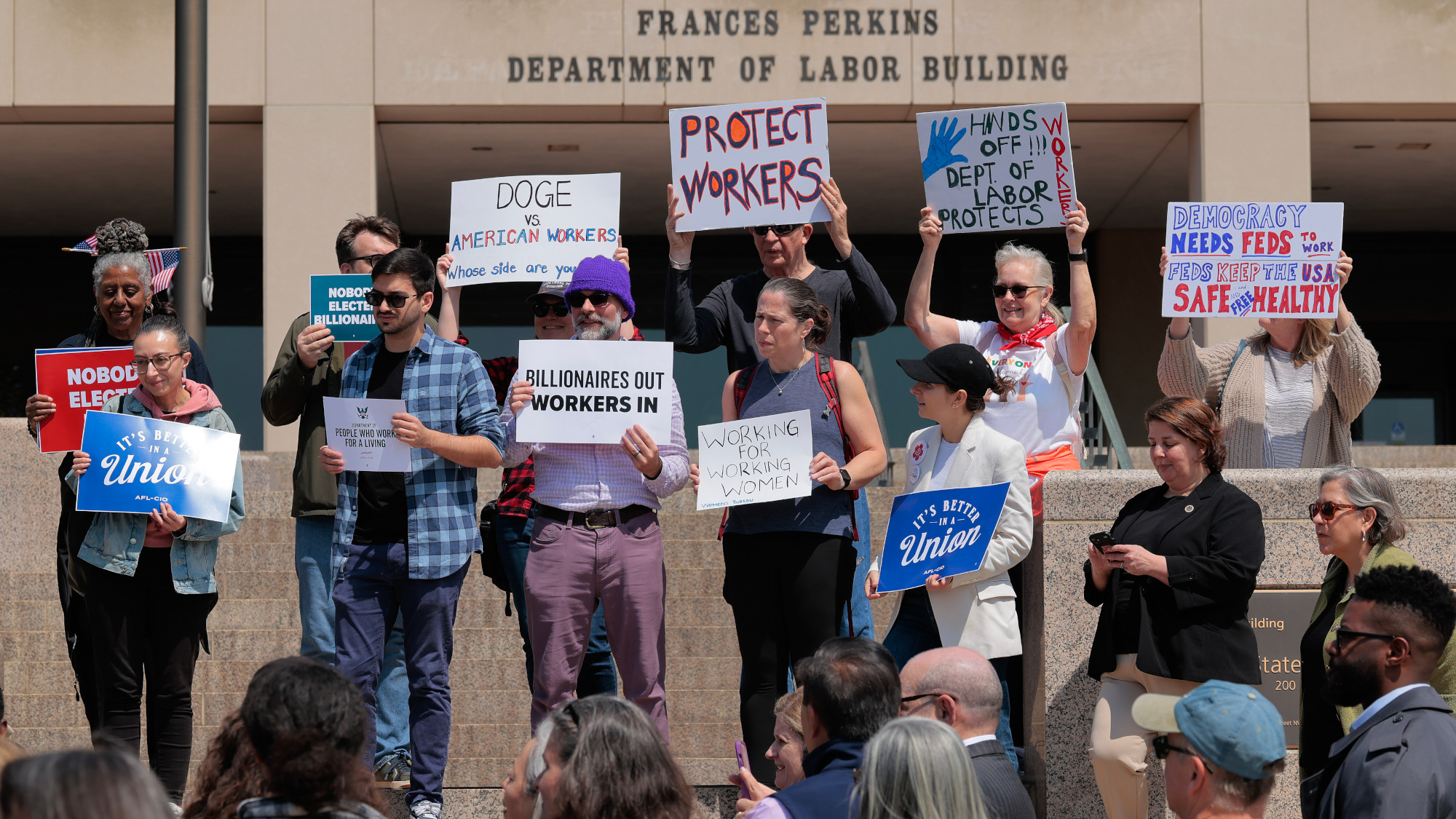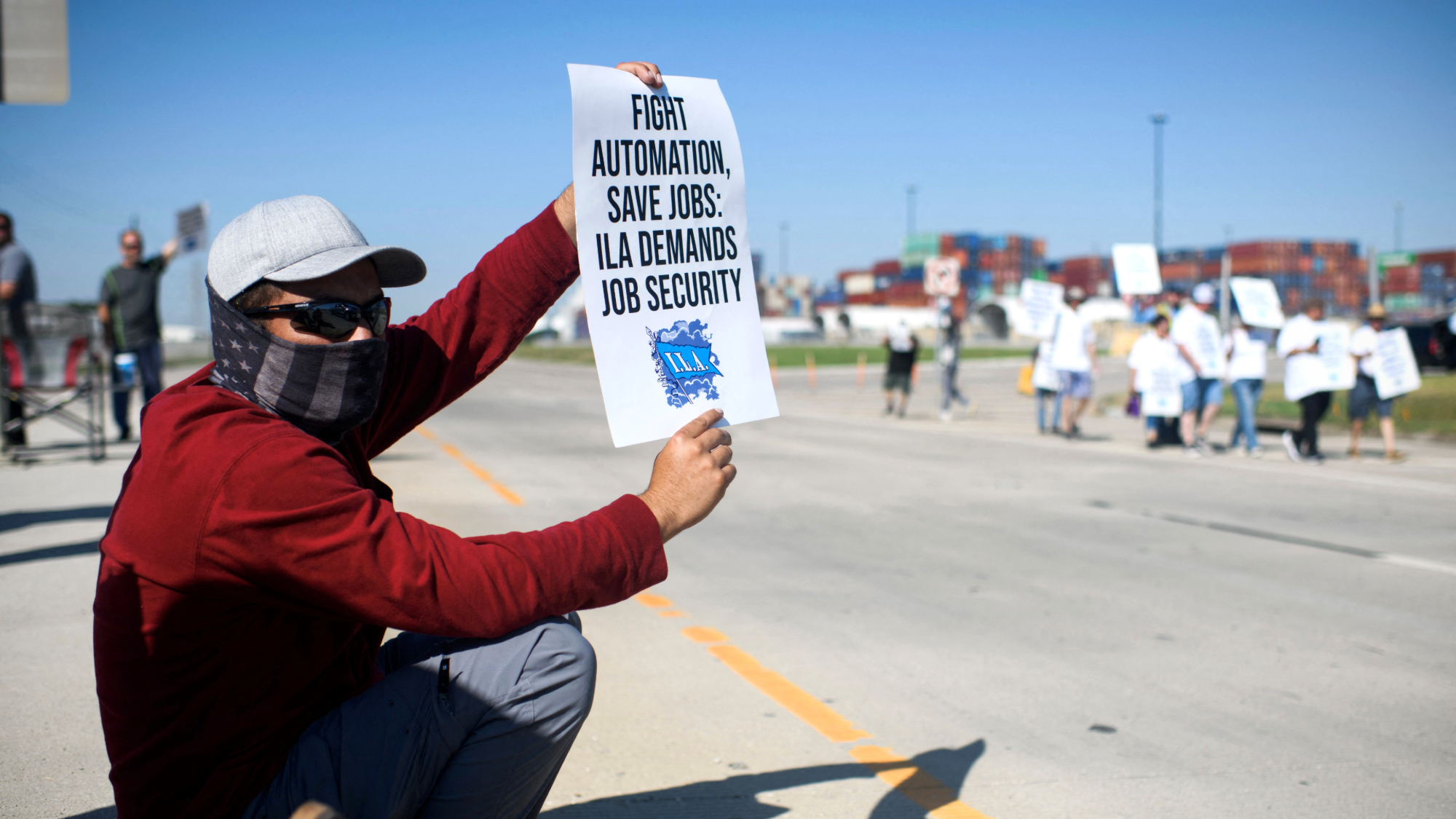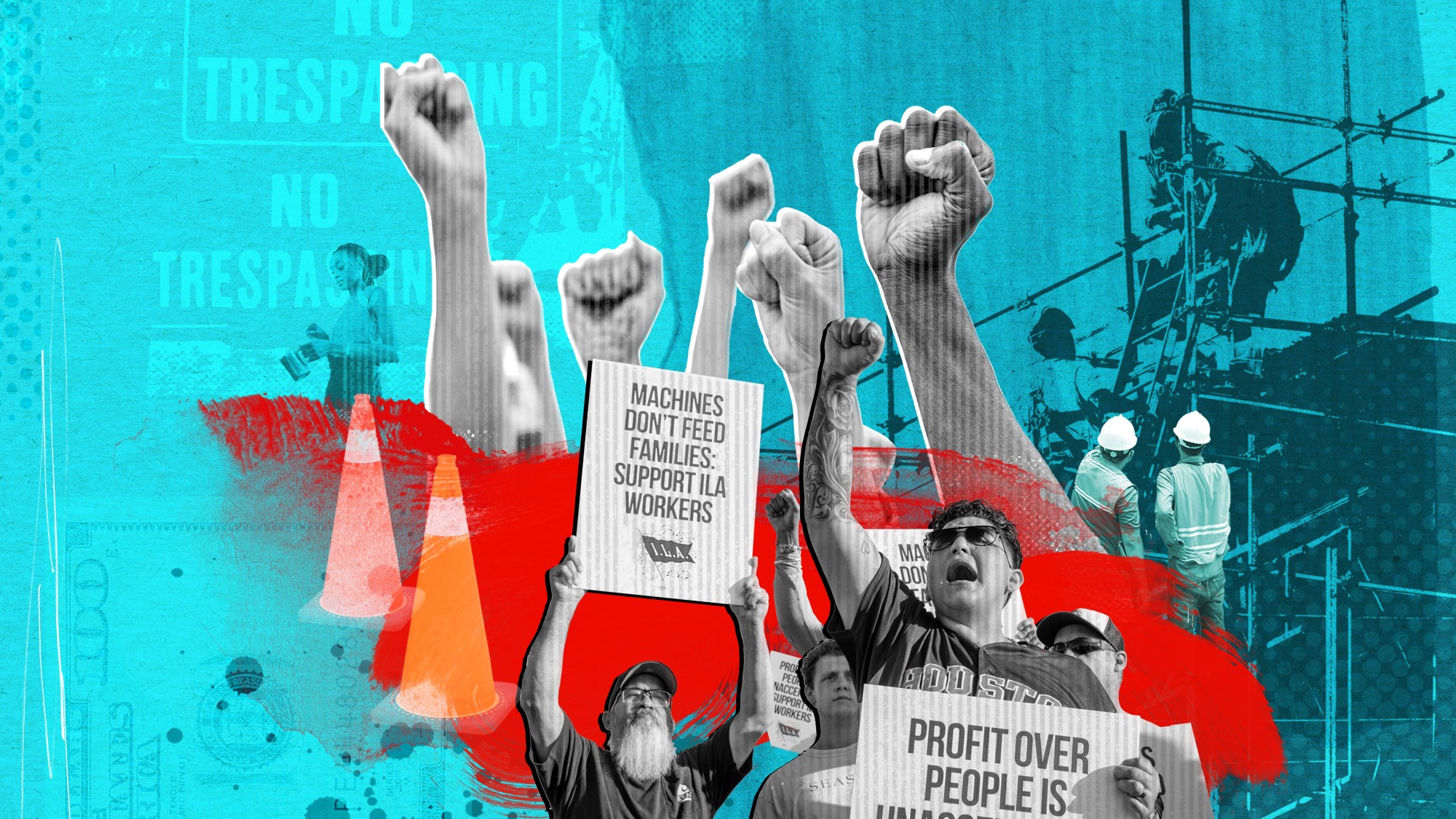Is the era of remote work over?
The future of work-from-home is going to vary wildly from industry to industry


A free daily email with the biggest news stories of the day – and the best features from TheWeek.com
You are now subscribed
Your newsletter sign-up was successful
Is the great work-from-home era coming to an end? While some executives, like those at Walt Disney and Meta, are pushing employees to show up in person, other companies, especially those in "university towns, tech hubs, and government centers," per Bloomberg, have continued to offer remote positions well into 2023. So is the trend on the way out, or is it here to stay?
Remote work is dwindling
Just a few years after COVID upended office life as we know it, work-from-home is becoming "increasingly rare," Gwynn Guilford writes for The Wall Street Journal. Indeed, almost 75 percent of business establishments — defined as each location of a business, including individual franchises of a larger chain — said that, in 2022, their employees rarely or never worked remotely, per a U.S. Labor Department report released March 22. That's up from 2021's 60.1 percent, and also not far off from 76.7 percent, or the share of business establishments that saw no employees working remotely pre-COVID and were open in February 2020.
In terms of hybrid arrangements, under which employees spend part of the week at home and part of the week in the office, such plans "decreased in all measured industries in 2022 from 2021, declining 13.4 percentage points across the private sector." This change was "particularly stark" in the finance sector, wherein the share of "establishments operating hybrid dropped by half, to 22 percent in 2022 from 44.9 percent in 2021." Where work-from-home did manage to remain relatively common was in "jobs that were traditionally done in an office," like tech and media positions or law and accounting roles.
The Week
Escape your echo chamber. Get the facts behind the news, plus analysis from multiple perspectives.

Sign up for The Week's Free Newsletters
From our morning news briefing to a weekly Good News Newsletter, get the best of The Week delivered directly to your inbox.
From our morning news briefing to a weekly Good News Newsletter, get the best of The Week delivered directly to your inbox.
Nonetheless, the trend still appears to be slipping overall, driven in part by "the declining share of fully remote workers," as well as the broader in-office push from companies.
But still big in big cities
A separate study from an "international team of economists" conversely found that remote work "is gaining momentum in some of America's largest metro areas, despite increasing pressure" from executives to return to the office, Alexandre Tanzi and Matthew Boyle summarize for Bloomberg. In fact, "[i]n some major US cities, the number of job postings for remote-friendly roles is hitting record levels — and trending up." In places like New York, Chicago, and Atlanta, "more postings are open to remote workers than at any time in the past three years." It seems that cities "with a greater white-collar workforce, especially in government, tech, and education have the highest share of new jobs offering remote and hybrid arrangements," said Peter Lambert, a member of the research team.
It's also possible that an impending recession has zero effect on the remote work phenomenon. That's because "allowing employees to operate outside of the office can also benefit companies," Sarah Kessler notes for The New York Times. For instance, in a survey conducted by the employment website ZipRecruiter, "job seekers on average said they would take a 14 percent pay cut in order to work remotely." Indeed, in the event of an economic downturn, "it's not that there won't be some loss of bargaining power by workers," said Steven Davis, a co-author of the monthly U.S. Survey of Working Arrangements and Attitudes. "It's just that many employers have their own independent reasons to think that the shift, the partial shift, to remote work is beneficial for them as well."
Further, it's pretty "difficult to revoke" remote work once it's implemented. "Many, many companies in recent months have insisted that people come back to the office five days a week, only to reverse that mandate within about a week after hearing that they'd lose their best and brightest," Julia Pollak, the chief economist at ZipRecruiter, told Kessler. Work-from-home is "not just used as a sort of perk in a tight labor market that's going to go away in a slacker labor market," she added.
A free daily email with the biggest news stories of the day – and the best features from TheWeek.com
Brigid Kennedy worked at The Week from 2021 to 2023 as a staff writer, junior editor and then story editor, with an interest in U.S. politics, the economy and the music industry.
-
 How the FCC’s ‘equal time’ rule works
How the FCC’s ‘equal time’ rule worksIn the Spotlight The law is at the heart of the Colbert-CBS conflict
-
 What is the endgame in the DHS shutdown?
What is the endgame in the DHS shutdown?Today’s Big Question Democrats want to rein in ICE’s immigration crackdown
-
 ‘Poor time management isn’t just an inconvenience’
‘Poor time management isn’t just an inconvenience’Instant Opinion Opinion, comment and editorials of the day
-
 Ski town strikers fight rising cost of living
Ski town strikers fight rising cost of livingThe Explainer Telluride is the latest ski resort experiencing a patroller strike
-
 What will the US economy look like in 2026?
What will the US economy look like in 2026?Today’s Big Question Wall Street is bullish, but uncertain
-
 Starbucks workers are planning their ‘biggest strike’ ever
Starbucks workers are planning their ‘biggest strike’ everThe Explainer The union said 92% of its members voted to strike
-
 Labor: Federal unions struggle to survive Trump
Labor: Federal unions struggle to survive TrumpFeature Trump moves to strip union rights from federal workers
-
 US port strike averted with tentative labor deal
US port strike averted with tentative labor dealSpeed Read The strike could have shut down major ports from Texas to Maine
-
 Boeing machinists reject deal, continue strike
Boeing machinists reject deal, continue strikeSpeed Read The rejection came the same day Boeing reported a $6.2 billion quarterly loss
-
 The pros and cons of globalization
The pros and cons of globalizationPros and Cons Globalization can promote economic prosperity but also be exploitative
-
 The pros and cons of labor unions
The pros and cons of labor unionsPros and Cons Companies throughout the country continue to push for unionization
